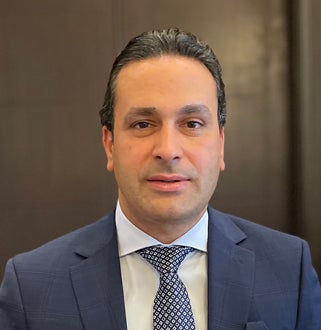Dr. Essam M. Abdelalim
Associate Professor
Educational Qualifications
PhD in Medical Science
MVSc (Master’s degree in Vet. Science)
Entity
College of Health and Life Sciences
Biography
Dr. Abdelalim is an Associate Professor at the College of Health and Life Sciences, Hamad Bin Khalifa University, and a Principal Investigator at Sidra Medicine, leading the Pluripotent Stem Cell Disease Modeling Laboratory. He holds a PhD in medical science from Shiga University of Medical Science, Japan, where he also completed a postdoctoral fellowship and served as an assistant professor.
Before joining Sidra Medicine, he served as a senior scientist at QBRI until February 2024, establishing Qatar's first pluripotent stem cell program dedicated to diabetes research. His team successfully generated multiple iPSC lines from patients with genetic disorders and developed innovative protocols to improve the differentiation of stem cells into pancreatic islets and other cell types.
In addition, Dr. Abdelalim chaired the HSCI-QBRI steering committee, overseeing collaborative diabetes and stem cell research initiatives. He serves on the editorial boards of “Stem Cells Translational Medicine” and “Stem Cells and Development” and has published over 75 articles in prestigious journals. He has received numerous research grants and awards throughout his career.
PhD in Medical Science
Shiga University of Medical Science, Japan
2009
MVSc (Master’s degree in Vet. Science)
Suez Canal University, Egypt
2002
BVM (Bachelor of Veterinary Medicine)
Suez Canal University, Egypt
1998
- Leveraging human pluripotent stem cells to model diabetes and rare genetic disorders
- to identify potential therapeutic targets.
- Generation of patient-derived iPSCs and application of gene-editing techniques to investigate the impact of specific gene functions and genetic mutations on disease mechanisms.
- Enhancement of differentiation protocols for stem cells to produce functional pancreatic beta cells for potential therapeutic use.
Principal Investigator-Associate Level
Translational Medicine, Sidra Medicine
2024 - Present
Joint Associate Professor
College of Health and Life Sciences, Hamad Bin Khalifa University
2023 - Present
Senior Scientist
Diabetes Research Center, Hamad Bin Khalifa University
2023 - 2024
Joint Assistant Professor
College of Health and Life Sciences, Hamad Bin Khalifa University
2018 - 2023
Joint Assistant Professor
College of Science and Engineering, Hamad Bin Khalifa University
2015 - 2018
Complete Publication Listing(s): PubMed
- 2022: 1st Place, QBRI-Affiliated Publications Award for Outstanding Corresponding Author for the years 2017-2022.
- 2022: QBRI Award for Excellence in Mentoring Graduate Students.
- 2021: QNL Open Initiative Award, for promoting student mentorship, biomedical science education, and open-access research in Qatar.
- 2021: QBRI Publication Award for outstanding contributions from 2018 to 2021.
- 2019: International Society for Stem Cell Research (ISSCR) Merit Award for our research, presented by my PhD student, Bushra Memon, at the ISSCR 2019 conference in Los Angeles.

